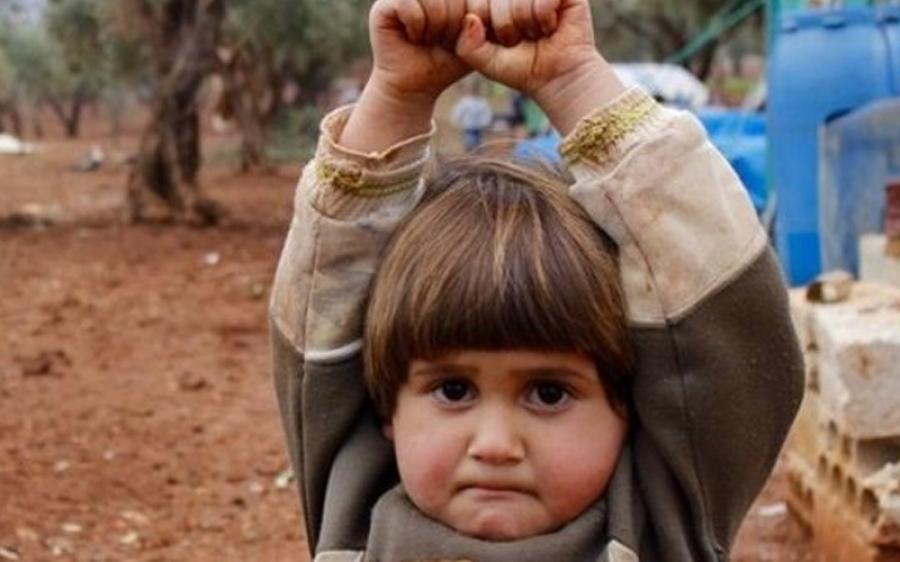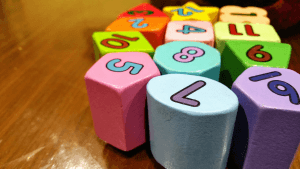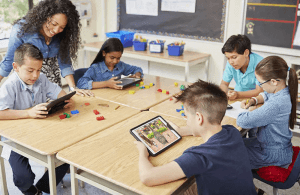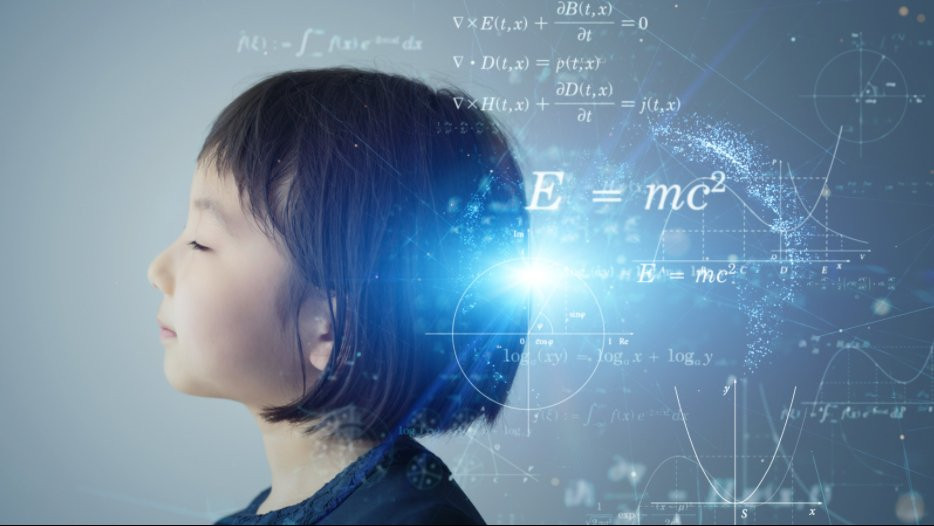Keeping “A I” on the Refugee Crisis
As a person and refugee who lived under the war for three years, I believe that Artificial Intelligence (AI) will open many educational doors. In Northern Syria, more than three million people live under brutal conditions, wondering if they will be able to live to see the light of tomorrow (UNICEF Middle East and North Africa). According to a shocking United Nations report, over two million children, over one-third of all Syrian children, do not attend school, and approximately 1.3 million children are likely to drop out (UNICEF Middle East and North Africa). However, not all hope is lost. With the help of AI, robots can mitigate the loss of education by teaching children remotely in conflict-ridden areas without the need to fund teachers. Additionally, it can provide victims with relief from the mental trauma that they may have experienced through the crisis. Therefore, with the mass production of robots, enjoyable and widely accessible educational services can be provided to any child lacking access to safe education, restoring education rates and simultaneously redirecting their focus away from the trauma they experienced.
How has the Syrian Conflict-Affected People?
Millions of refugees, from children to seniors, suffer from psychological problems and post-traumatic stress disorder (PTSD) due to exposure to violence. Therefore, bringing up events related to the war or the victim’s experiences may invite unwanted flashbacks, thus negatively impacting their daily life and mental health. According to Syria Relief’s report, 84% of refugees had at least seven symptoms of PTSD, and only 15% of individuals had access to mental support (Ahmed). As the statistics suggest, trauma is widespread among Syrians, which is likely to prevent them from returning to their homeland, even if the conditions stabilize.
The trauma is so severe that words are not the only trigger for sufferers. Exposure to machinery is also detrimental to the health of refugees because they faced lethal weapons without prior experience with this technology (Ahmed). Therefore, even simple devices like smartwatches and mobile devices can traumatize Syrians. For example, in the photo displayed below, a four-year-old Syrian girl found in a refugee camp near the Syrian-Turkish border is evidently frightened by the camera lens. When Turkish photographer Osman Sagir filmed her, she licked her lips in fear and raised her hands because she thought the camera was a weapon. This displays the extent to which the Syrian crisis has impacted people’s mental health.

Usually, when children are photographed, they are smiling at the camera, but happiness is out of the picture in Syria and conflict-torn areas. (“Osman Sağırlı”).
How Can AI Relieve Trauma?
Although technology may seem intimidating to refugees that have been exposed to weapons, with proper guidance and a little familiarization, it is easy to become accustomed. AI can provide consolation via entertainment services, including television, video games, and calming applications. A study conducted by VA Research Communications proved that video games could help veterans recover from mental health challenges such as PTSD and substance abuse disorders (Richman). Likewise, patients who suffer from PTSD caused by the Syrian crisis can also recover with the same technological remedy. Players tend to divert their focus from their PTSD onto the game, consoling their trauma, and this is proven to help manage moods, relieve stress, boost confidence and socialization (Richman). With the wide selection of video games and similar applications today, patients always have options of what to play, from mind puzzles like Sudoku and word searches to sports, such as NBA 2k and Madden. Mike Richman states that “Even shooting games, which may host similar environments to conflict areas, are proven to work, as the computer-generated environment can allow them to confront their reality positively.” Therefore, technology is undoubtedly beneficial for treating patients’ mental stress and trauma.

(“Telford Preschool”).

(Mahanta).
How Can AI Help With Education?
The introduction to robots and other AI tools not only can alleviate trauma but can also allow students to continue learning. War and national conflicts have created a hostile environment where going outside could be fatal, and as a result, education has been halted. However, AI can fix this problem. With the advancement of technology, numerous learning resources are widely available online, allowing displaced students to learn and proceed onto their careers. Students, especially children, enjoy learning through games, and AI can easily provide this “edutainment.”
In the past, before educational applications existed, children were most familiar with traditional toys such as the alphabet and number blocks to educate them. However, now robots can also be used to balance screen time. With such features of learning presented online, students are more inclined to be engaged learners, as it is more enjoyable (“Why Do Children”). In the past, parents forced their children to study and complete their homework before allowing them to play outside or watch TV and have fun indoors (“Why Do Children”). This would encourage children to do their schoolwork for the primary purpose of playing later, which would hinder growth and development, as their focus is not on education. However, the presence of educational games makes children spend their time learning new things without them realizing it, allowing them to grasp concepts more thoroughly (Houser). This progression can increase childrens’ intelligence globally. In short, technology allows children to learn at home, in a safe, cozy environment, and it holds the potential to make children better at school by letting them have more fun.
How Can You Help? / Organizations
Although technology is making a difference in helping Syrian refugees reclaim some normalcy in living, there is still a long way to go. Syria still suffers from economic disparity, medical issues, and substandard sanitation services, and many residents are struggling to obtain access to clean water, food, and shelter. However, change can be made: any contribution can make an impact, no matter how small. By supporting organizations aiming to provide relief from suffering, you could change someone’s life.
VIP Fund: VIP Fund is an organization with the goal of making higher education more accessible for conflict-impacted students. They do this by providing educational webinars, mentorship, and work opportunities. For instance, Syria Digital Lab (SDL) is designed to connect Syrian tech developers with civil society organizations and entrepreneurs to tackle ongoing conflicts in Syria. Another program, Dwara, provides young women with a safe space to express and build a community together along a common theme. The peer-to-peer program pairs mentors and mentees who are close in age from across the world fostering an environment of mutual learning and cultural exchanges.
Malala Fund: Malala Yousafzai believes that real change for girls’ education occurs at a local level. Through the Education Champion Network, the Malala Fund has supported education activists challenging policies that prevent girls from attending school. They invest in their work, support their professional development, and connect themselves to develop regional, national, and global networks. By leveraging the collective power of their Education Champions, the Malala Fund is creating broader change and making it easier for all girls to learn.
Mercy Corps: Established as a global team of humanitarians, Mercy Corps’s mission is to provide aid to nations from poverty and disaster globally, including Syria. They do this by delivering clean water and food, helping children cope with stress, and restoring sanitation systems to over 1.6 million refugees. Mercy Corps is dedicated to restoring the lives of displaced individuals, despite the challenges of COVID-19. You can contribute to change by signing their petitions, volunteering on the front line, and even writing and sending a card.
Artificial intelligence is revolutionizing our future; even if it seems like hope is lost, as with the displaced Syrians, technology can pave the way for success. Many Syrian refugees and asylum seekers can significantly benefit from the help of technology. Whether it be relieving mental stress, providing beneficial entertainment, or allowing children to continue education safely, AI is essential in improving people’s lives and crafting new opportunities. Technology is like a train ride: if you do not board a seat, you will be able to embrace the journey for the betterment of yourself and the world.
Works Cited:
- Ahmed, Kaamil. “More than 75% of Syrian Refugees May Have PTSD, Says Charity.” The Guardian, Guardian News and Media, 1 Mar. 2021,
- Houser, Kristin. “The Solution to Our Education Crisis Might Be AI.” Futurism, Futurism, 11 Dec. 2017.
- Mahanta, Pranalika. “Learning Math with Games: A Complete Guide to Transform Your Classroom.” Prodigy Education, 15 Oct.
- Richman, Mike. “Video Games Can Help Veterans Recover from Mental Health Challenges.” Study: Video Games Can Help Veterans Recover from Mental Health Challenges, 22 May 2019.
- Telford Preschool.
- “Osman Sağırlı.” Phogotraphy, 31 Mar. 2015.
- UNICEF Middle East and North Africa. “Syria Crisis Fast Facts.” UNICEF Middle East and North Africa, 1 Aug. 2019.
- “Why Do Children with Autism Learn Better from Robots?” LuxAI S.A., 12 Aug. 2021.
(By Bashar Alallawi and Samay Bhinge).
Check out my campaign and get to know me.


